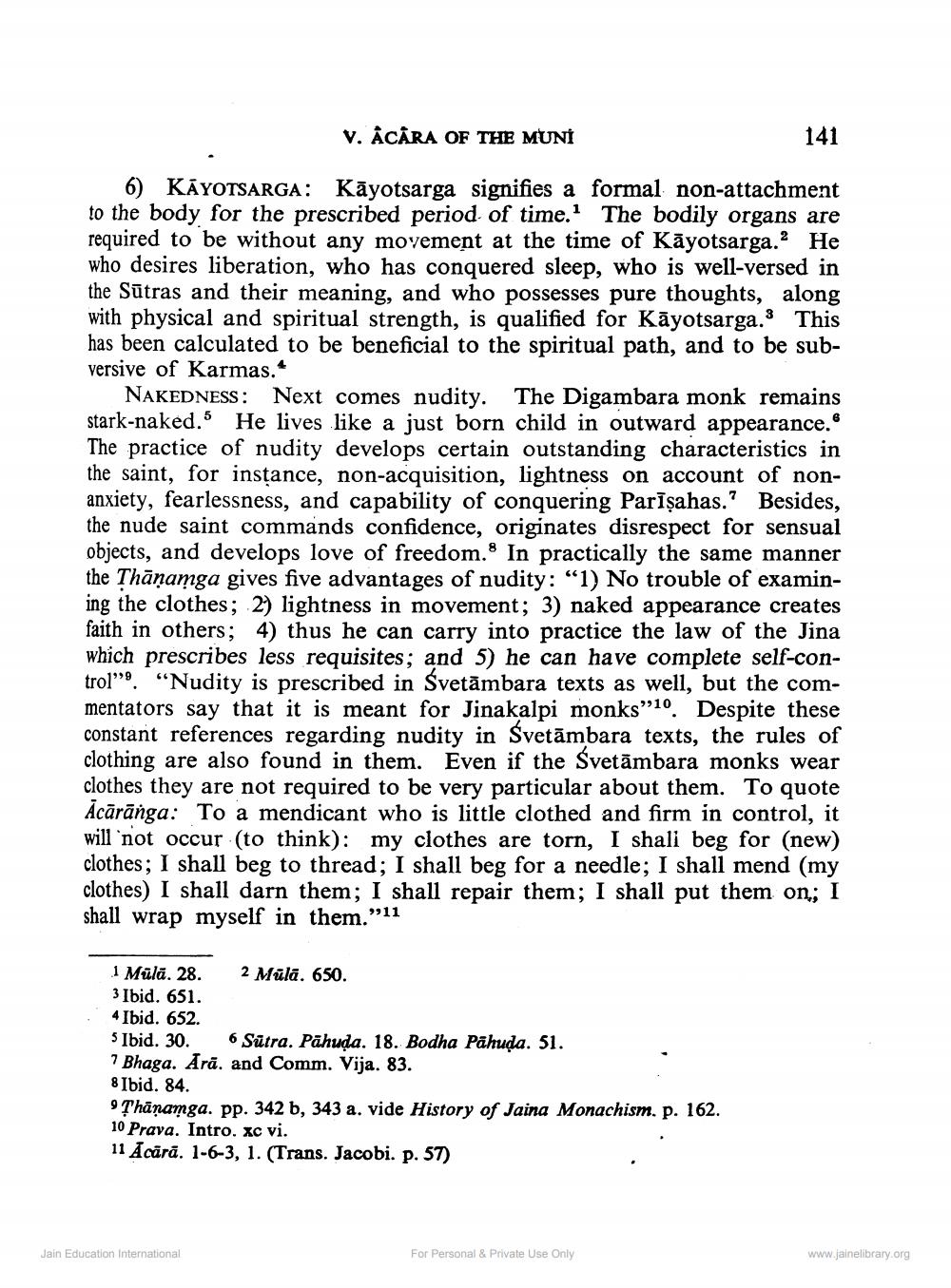________________
v. ACARA OF THE MUNI
141
6) KAYOTSARGA: Kāyotsarga signifies a formal non-attachment to the body for the prescribed period of time. The bodily organs are required to be without any movement at the time of Kāyotsarga. He who desires liberation, who has conquered sleep, who is well-versed in the Sūtras and their meaning, and who possesses pure thoughts, along with physical and spiritual strength, is qualified for Kāyotsarga. This has been calculated to be beneficial to the spiritual path, and to be subversive of Karmas.*
NAKEDNESS: Next comes nudity. The Digambara monk remains stark-naked. He lives like a just born child in outward appearance. The practice of nudity develops certain outstanding characteristics in the saint, for instance, non-acquisition, lightness on account of nonanxiety, fearlessness, and capability of conquering Parīşahas.? Besides, the nude saint commands confidence, originates disrespect for sensual objects, and develops love of freedom. In practically the same manner the Thāņamga gives five advantages of nudity: “1) No trouble of examining the clothes; 2) lightness in movement; 3) naked appearance creates faith in others; 4) thus he can carry into practice the law of the Jina which prescribes less requisites; and 5) he can have complete self-control". "Nudity is prescribed in Svetāmbara texts as well, but the commentators say that it is meant for Jinakalpi monks”10. Despite these constant references regarding nudity in Svetāmbara texts, the rules of clothing are also found in them. Even if the Svetāmbara monks wear clothes they are not required to be very particular about them. To quote Acārānga: To a mendicant who is little clothed and firm in control, it will not occur (to think): my clothes are torn, I shali beg for (new) clothes; I shall beg to thread; I shall beg for a needle; I shall mend (my clothes) I shall darn them; I shall repair them; I shall put them on; I shall wrap myself in them."11
1 Mülā. 28. 2 Müla. 650. 3 Ibid. 651. 4 Ibid. 652. 5 Ibid. 30. 6 Sūtra. Pähuda. 18. Bodha Pähuda. 51. 7 Bhaga. Arā. and Comm. Vija. 83. 8 Ibid. 84. 9 Thānamga. pp. 342 b, 343 a. vide History of Jaina Monachism. p. 162. 10 Prava. Intro. xc vi. 11 Ācārā. 1-6-3, 1. (Trans. Jacobi. p. 57)
Jain Education International
For Personal & Private Use Only
www.jainelibrary.org




